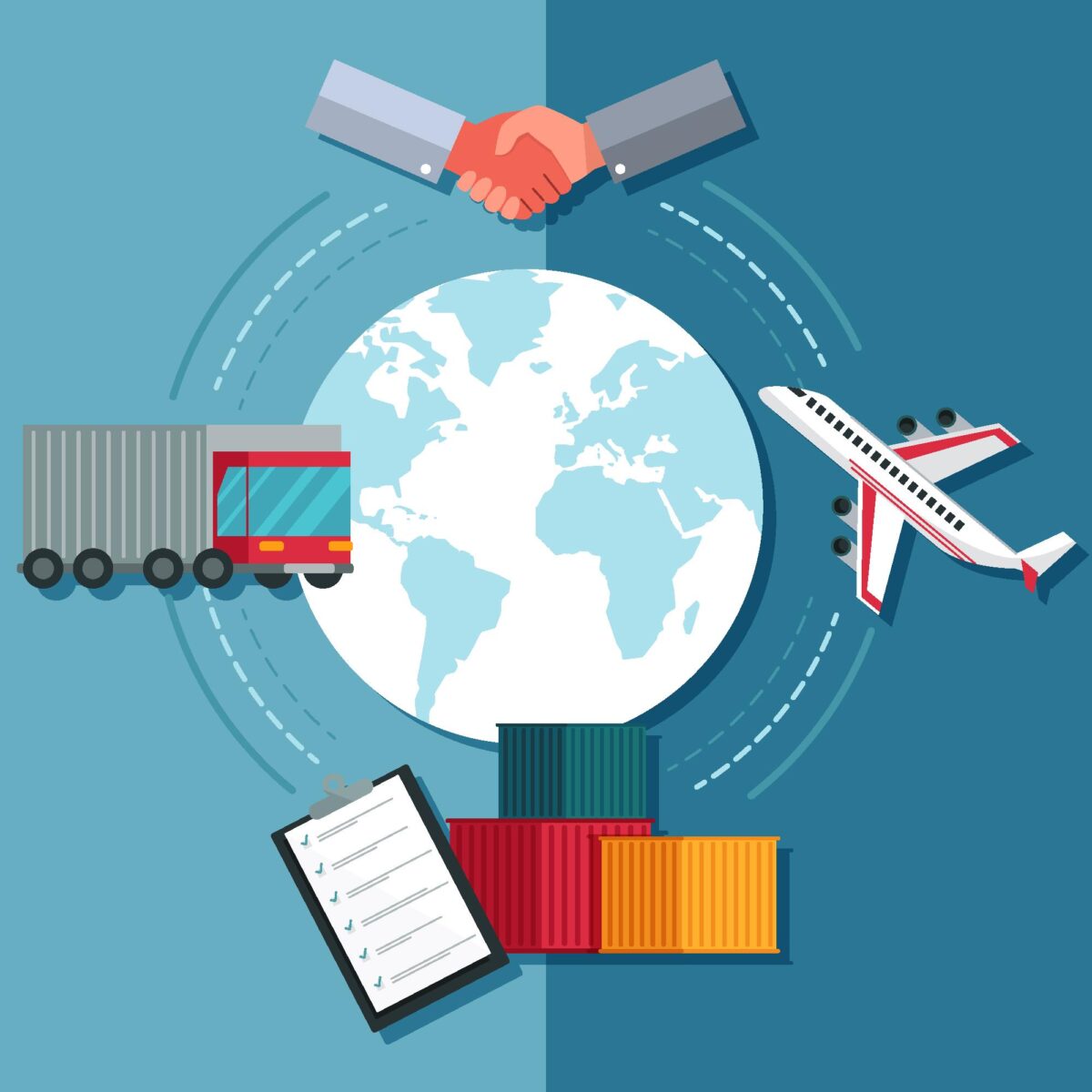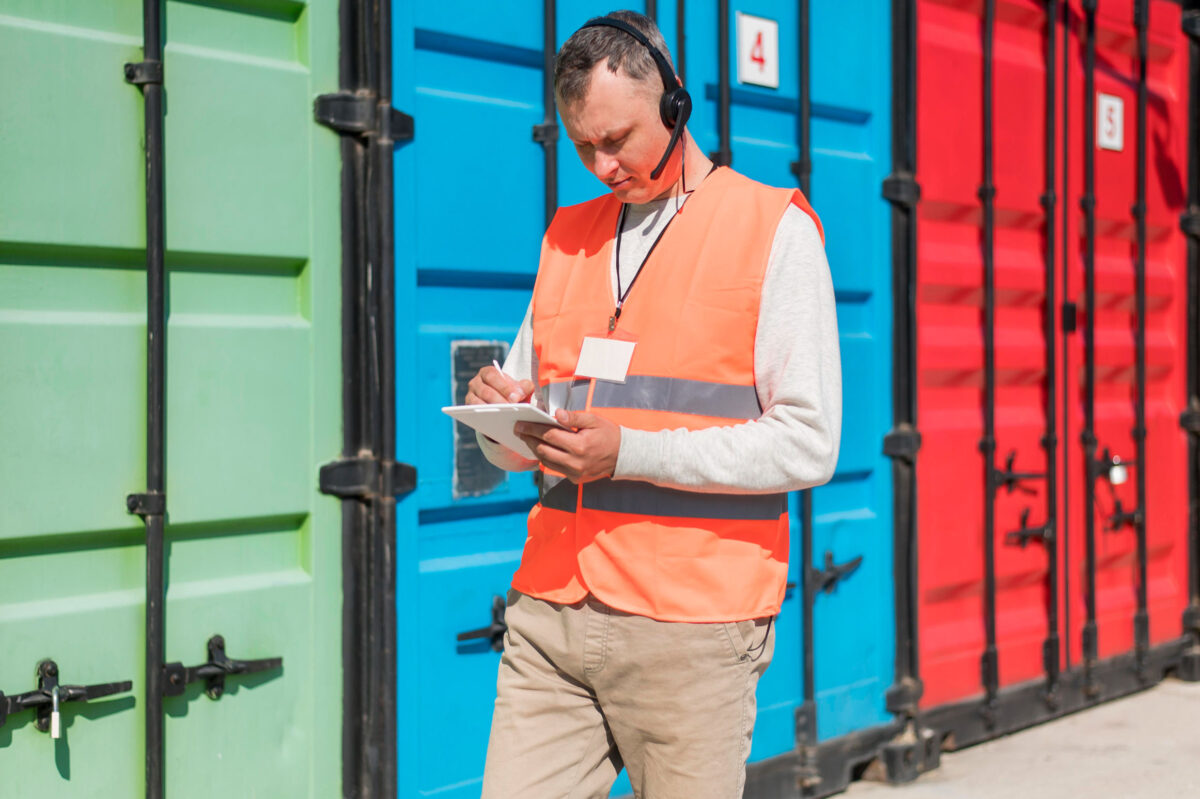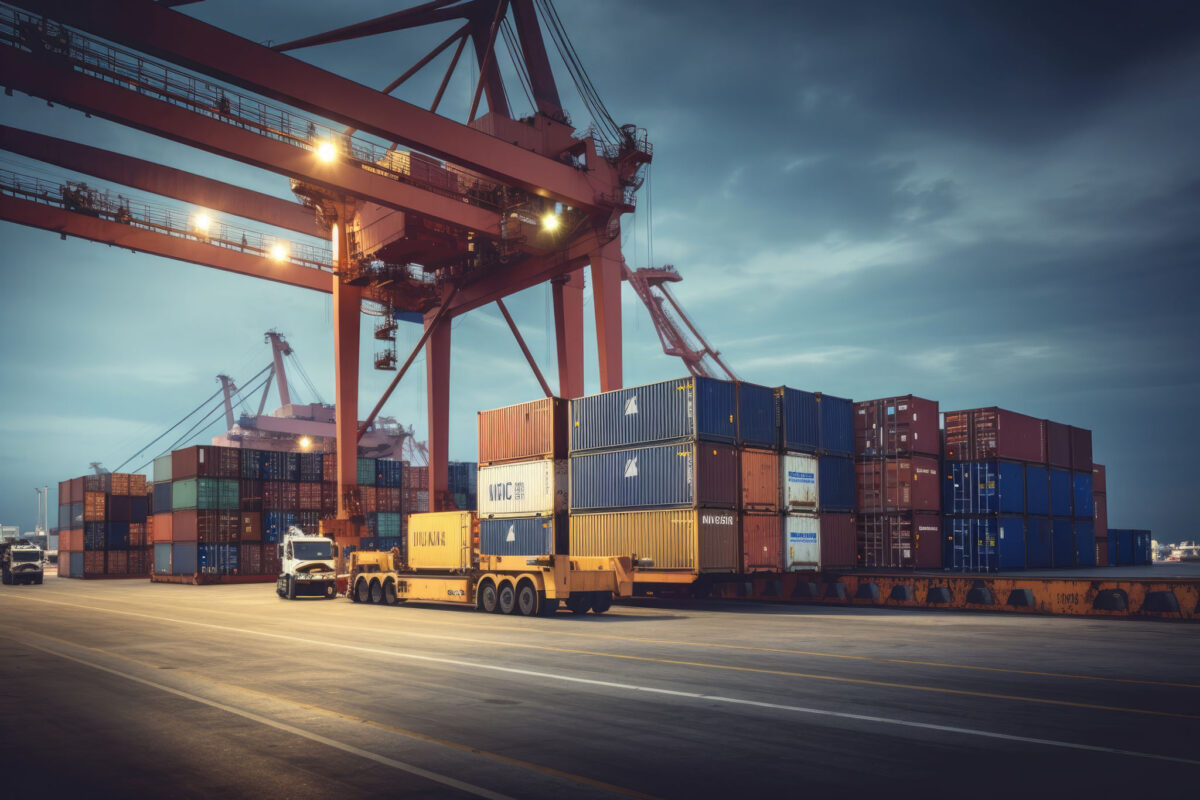
The world today is vastly different from the past due to significant technological advancements that have made communication more borderless. This has naturally led to increased opportunities for interesting international trade. Many merchants may have received golden opportunities from individuals abroad interested in their products and wanting to import them into their own countries. However, they might have missed these opportunities due to uncertainty about where to start or how to correctly navigate the process.
Today, Freight Rangers will guide you through the basic customs procedures and introduce an alternative solution: Freight Forwarders services. This will help make international shipping easier and more accessible.

1. Registration
Registration is the first essential step for those involved in importing, exporting, forwarding, handling, and other related activities. The Customs Department has issued a notice requiring individuals involved in any customs-related activities to register with the Customs Department. This ensures that their roles and responsibilities are clear and establishes the business relationships between private entities. For detailed instructions on how to register as an importer, exporter, or any customs-related operator, you can visit the website directly at http://www.customs.go.th
Ways To Register
For businesses wishing to conduct customs procedures or engage in customs-related activities electronically, there are several ways to register. Currently, registration can be done through the following three methods:
Register at the Customs Registration Service Unit
You can register at the Customs Registration Service Unit through the following locations:
- Registration and Privileges Section, Customs Procedures and Tariff Standards Bureau, 1st Floor, 120th Anniversary Building, Customs Department.
- General Administration Division or any approved office or customs checkpoint.
Register through the Customs Trader Portal Online Registration System
Registering through the Customs Trader Portal online registration system is another convenient option for many. To use this channel, businesses must have the “Paotang” application for registration. This system is available only to Thai individuals and legal entities where all directors are Thai nationals.
Additionally, it’s important to note that legal entities that have not previously registered their names in English with the Department of Business Development must first complete the English name registration before using this system.
Register through the Customs Department Website
Businesses can register through the Customs Department website, specifically the Online Customs Registration site. This method requires an electronic certificate (Digital Certificate), which can be obtained from a Certificate Authority.
Validity of Registration
The registration remains valid for those who continuously conduct transactions with the Customs Department. However, if the Customs Department finds that the registrant has not engaged in customs activities for a continuous period of 6 months, they will suspend the use of the registration information.
2. Customs Procedures in the Electronic Document-Free System
Customs procedures in the electronic document-free system, also known as the Document-Free Electronic Customs Procedure System, have been introduced because the Customs Department now uses information technology for import, export, and transit processes.
Those who wish to conduct customs procedures through this system must first be approved as data submitters for the electronic document-free system. The Information Technology and Communications Division will test the data submission programs and approve the data submitters. Data submission can be done in the following ways:
- Importers and Exporters can procure their own data submission programs and electronic signatures and submit the data themselves.
- Importers and Exporters can hire customs agencies with data submission programs and electronic signatures to submit the data on their behalf.
- Use the Counter Service for data submission.
- Data Entry Service by Customs Officers, which involves a recording fee of 100 baht in addition to the 200 baht customs processing fee.

3. Customs Procedures in Document Form
Customs procedures in document form are applicable for certain types of goods, in cases where the Customs Department has specified that imports and exports do not need to be processed through the electronic customs procedure system. This allows importers and exporters who have not registered with the Customs Department to receive goods, send goods, and pay duties without needing to register as importers or exporters.
Import or export processes that do not require electronic customs procedures include:
Import or export processes that do not require electronic customs procedures include:
Postal Imports
Examples of postal imports are:
However, if goods from one sender to one recipient at the same time have a value not exceeding 40,000 baht and are inspected by customs officers and Thailand Post, the customs officers will assess the duty for the parcel. The parcel will be delivered to a nearby post office, where the recipient will be notified to collect the goods. At the post office, the recipient can pay the import duties and other taxes, receiving a receipt from Thailand Post Co., Ltd. as proof of payment.
If the recipient does not wish to accept the goods or wishes to contest the duty assessment, they can notify the postal staff to request a review. To request a review, the recipient must print the review request form from the Customs Department website and submit it along with evidence of the transaction to the postal staff. The parcel will then be returned to the Customs Department for further action by the recipient.
- Goods with a customs value not exceeding 1,500 baht that are not prohibited or require special import permits.
- Goods intended as samples that can only be used as samples and not for any other purpose.
However, if goods from one sender to one recipient at the same time have a value not exceeding 40,000 baht and are inspected by customs officers and Thailand Post, the customs officers will assess the duty for the parcel. The parcel will be delivered to a nearby post office, where the recipient will be notified to collect the goods. At the post office, the recipient can pay the import duties and other taxes, receiving a receipt from Thailand Post Co., Ltd. as proof of payment.
If the recipient does not wish to accept the goods or wishes to contest the duty assessment, they can notify the postal staff to request a review. To request a review, the recipient must print the review request form from the Customs Department website and submit it along with evidence of the transaction to the postal staff. The parcel will then be returned to the Customs Department for further action by the recipient.
Exporting Goods Abroad via Post
Exporting goods abroad via post without the need to prepare an electronic document-free export declaration can be done at the post office without any interaction with the Customs Department, provided that the goods are not prohibited, do not require prior export authorization, do not benefit from tax advantages, or are not exempt from duties under Section 4 of the Customs Tariff Act B.E. 2530 (1987), or do not require VAT credit. The following conditions apply:
- Goods with a value not exceeding 10,000 baht.
- Gemstones with a value not exceeding 50,000 baht.
Importing and Exporting Certain Goods at Border Checkpoints
Importing and Exporting Certain Goods at Border Checkpoints have following conditions
Importing
Importing goods by bringing them across the border at permanent, temporary, or trade facilitation points can be done if the goods have a value not exceeding 50,000 baht or fall under restricted import categories as per the law but have been authorized by the relevant agency for import. The importer must be ready to pay the duties on the day of import. Customs officers will calculate the tax and issue a receipt as proof of payment.
Exporting
Exporting through border checkpoints can be done if the value of the goods does not exceed 50,000 baht and the goods are not subject to export duties, prohibitions, or restrictions, do not benefit from tax advantages, and do not use exemptions under Section 4 of the Customs Tariff Act B.E. 2530 (1987). The exporter must submit a detailed export declaration form (Customs Form 153) as prescribed by the Customs Department to regulate exports through the border checkpoints.
Importing and Exporting Using Express Service Providers for Pickup and Delivery
The criteria for importing and exporting goods using express service providers for pickup and delivery are as follows:
Importing
- Documents : Import documents that are not subject to duties under Section 2 of the Customs Tariff Act B.E. 2530 (1987).
- Goods Valued Up to 1,500 Baht : Goods imported with a customs value not exceeding 1,500 baht that are not prohibited or require import authorization.
- Samples : Goods that are samples and can only be used for sample purposes, not for any other use.
- Goods Valued Up to 40,000 Baht : Goods with a value not exceeding 40,000 baht that are not prohibited or require import authorization. The importer must agree to allow the express service provider to act on their behalf in customs procedures. The express service provider will handle customs procedures and pay any duties upfront, then deliver the goods to the recipient’s establishment. The Customs Department will issue a receipt for the duties paid, which will be recorded under the name of the importer.
Exporting
- Documents : Export documents that are not subject to export duties and are not prohibited or require export authorization.
- Goods Valued Up to 500,000 Baht : Goods with a value not exceeding 500,000 baht that are not subject to export duties, are not prohibited, or restricted for export, and do not benefit from tax advantages or exemptions under Section 4 of the Customs Tariff Act B.E. 2530 (1987).
Therefore, importers and exporters who agree to have the express service provider manage customs procedures on their behalf do not need to register as importers or exporters with the Customs Department.

Consult an Expert and Eliminate Export Issues
Consulting with an expert can resolve all your export challenges. Handling exports on your own requires significant time to learn and manage documentation. Nowadays, services like Freight Forwarders, such as Freight Rangers, are available to take care of international shipping and provide advice to those interested in expanding their business opportunities. With over 10 years of experience in the logistics industry, Freight Rangers offers professional expertise in both import and export processes, ensuring that exporting goods will no longer be a hurdle for your business growth.
Summary
The customs procedures involve detailed steps that require understanding and expertise to execute correctly. If you are planning to export goods and seek convenience and speed, it is recommended to use the services of experienced Freight Forwarders like Freight Rangers. They will make international shipping straightforward and ensure all processes are completed accurately and efficiently.
